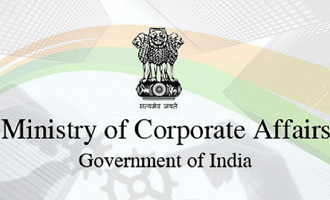Confederation of Indian Industry (CII) collaborated with Grant Thornton Bharat (GTB) to conduct a survey that reveals the rapid advancement in India’s sports infrastructure, identifying key cities that are emerging as future global sporting destinations.
The ‘Sports Cities of India 2024’ report evaluates cities across parameters like infrastructure development, athlete programs, fan engagement, and their readiness to host large-scale international events. With participation from national sports federations, government bodies, and sports industry experts, the survey highlights how India is gearing up for its ambitious bid to host the 2036 Olympics. The report further provides crucial data on which cities are best prepared to transform into world-class sporting hubs, driving India’s goal of becoming a global powerhouse in sports.
While tracking the pulse of the survey, Bhubaneswar, Chennai, and Ahmedabad emerge as pivotal players in India’s sports development. Bhubaneswar stands out with its Kalinga Sports Complex, which has successfully hosted international events, including the FIH Men’s Hockey World Cup, demonstrating its capacity for global competition. Chennai is making significant strides with the upcoming Global Sports City project, reflecting its ambition to become a premier multi-sport hub, equipped to host diverse international events. Meanwhile, Ahmedabad, home to the Narendra Modi Stadium—the world’s largest cricket stadium—continues to cement its status as a key global venue for major sporting events. Together, these cities exemplify the progress being made in India’s sports ecosystem, setting new standards for infrastructure, athlete engagement, and international event readiness.
Mr Chanakya Chaudhry, Chairman CII National Committee on Sports said “The sports sector is experiencing remarkable growth, fuelled by the passion of our young enthusiasts. The Sports Cities Report 2.0 is a comprehensive and inclusive assessment by ClI and Grant Thornton Bharat that aims to highlight a more comprehensive evaluation of cities, providing a clearer and more accurate picture of their capabilities to emerge as sports hub for India. We must also acknowledge the vital role of women in sports, celebrating their leadership and contributions. Infrastructure is fundamental for advancing sports, and collaboration with stakeholders and private developers will be key in shaping this journey.”
“What stands out in this year’s survey is the tangible shift towards a holistic approach in sports development,” said Abhishek Binaykia, Partner, Grant Thornton Bharat. “Beyond just infrastructure, cities are focusing on long-term athlete development, integrating cutting-edge technology, and fostering partnerships between government and private entities to create a sustainable sports ecosystem. This approach is crucial as India moves towards its 2036 Olympic ambitions. The data highlights a strong momentum, not just in traditional sports, but also in the rise of e-sports and adventure sports, which are becoming key drivers of youth engagement and fan base expansion.”
The study also highlights the exponential rise of e-sports in India, with formal government recognition and growing corporate sponsorship driving its growth. Cities like Bengaluru, Delhi, and Mumbai are emerging as e-sports hubs, supported by major tournaments and leagues such as the ESL India Premiership. The appeal of e-sports lies in its ability to engage younger audiences and bridge the gap between traditional and digital sports. E-sports is rapidly becoming a cornerstone of India’s sports ecosystem, attracting millions of viewers and offering new career opportunities in gaming, streaming, and digital marketing.
The Indian government has shown robust commitment to sports development, with a recent allocation of ?3,442.32 crore in the Union Budget 2024-25, focusing on grassroots programs and elite athlete support. The Khelo India initiative continues to be a driving force, with ?900 crore dedicated to promoting sports at the grassroots level. As India scales its sporting ambitions, the collaboration between state governments, private enterprises, and sporting bodies will be crucial in developing sustainable infrastructure and athlete development programs. With strategic investments and innovations, India is not only preparing to host world-class events but also building a vibrant and inclusive sports ecosystem for future generations.




